At the dawn of the 21st century, technology has permeated every aspect of our lives, transforming the way we communicate, work, learn and entertain ourselves. However, despite its undeniable benefits, this rapid digital revolution has brought to the forefront a new and critical challenge: the need for Digital Wellbeing.
Completely aligned with the necessity for innovation and the demands of our times, ‘Information Society’ is taking initiatives to promote digital wellbeing.
The first workshop aiming to raise awareness on digital wellbeing within the family, defined as the balanced use of digital media while avoiding internet addiction, has already taken place, generating an enthusiastic response and fruitful interest.
Speakers Mrs. Aleka Stamatiadi, communications consultant, and Mr. Giorgos Voulgaris, consultant for corporate infrastructure support at ‘Information Society’, provided insights to ‘Information Society’ executives and staff on the concepts of digital wellbeing, digital literacy and internet safety.
In particular, the workshop focused on how we can set clear rules and boundaries for children, especially during their free time on school holidays, as well as for ourselves as adults and parents in general. Through an engaging discussion and crucial questions raised by the attendees and answered by the speakers, we were informed about useful tools and applications that can protect us and our family from the negative aspects of digital media use.
In an era defined by the unprecedented growth of artificial intelligence and the constant use of digital media, digital wellbeing is emerging as a key and critical concept for both quality of life and mental health. Being constantly connected, receiving an enormous quantity of information and interacting with artificial intelligence algorithms and bots everyday pose new challenges, making the need for rational and sustainable use of technology imperative.
While the digital revolution undoubtedly offers multiple benefits, it also brings a number of risks. From information overload and social media addiction to digital burnout and the impact on mental health. Digital wellbeing is no longer an option – it is a necessity.
A digital presence is inevitable. However, the lack of digital literacy and the inability to manage technology can lead to negative consequences on a personal, psychological and social level. These effects can also extend to the workplace, where constant connectivity and high demands can lead to reduced productivity and increased stress.
How we can live in harmony with technology and protect our mental health in the digital age
Digital Wellbeing is defined as the state in which people are able to maintain a healthy and balanced lifestyle while using digital technologies in a beneficial, creative and effective way. It is the ability to control and manage one’s relationship with technology, rather than being controlled by it.
The importance of Digital Wellbeing has become urgent for many reasons, especially in the era of the rapidly developing Artificial Intelligence (AI). From work and education to entertainment, digital connectivity is now a given. When poorly managed, it can lead to burnout and stress.
Furthermore, the constant use of social media, this constant scrolling, the endless comparisons with the “ideal” lives of others, the fear of missing out on the latest posts and news (FOMO), cyberbullying and a reluctance to socialize offline have been linked to increased levels of anxiety, depression and loneliness, particularly among young people. It is scientifically proven that the constant flow of data and notifications can lead to reduced concentration, inability to focus and a sense of saturation.
AI now shapes the information we see, the products that are recommended to us, and even our interactions. Understanding how it works and how to use it responsibly is vital if we are to become active users rather than passive recipients. With AI collecting and processing massive amounts of data, protecting our privacy is becoming more complex and more important than ever. Digital literacy helps us understand the risks and take appropriate measures.
In the workplace, the need for constant availability and the blurred lines between work and personal life, especially when it comes to remote work, can lead to higher stress levels and lower productivity.
Digital wellbeing is the key to maintaining balance. Achieving it requires knowledge, learning, new habits and skills to use the tools of technology for the benefit of all.
More specifically, Digital Wellbeing can be achieved by following these practices:
- Screen Time Management: The ability to set and maintain limits on screen time, avoiding excessive and unconscious use.
- Privacy and Security: Awareness and implementation of privacy and cybersecurity practices.
- Critical Thinking and Digital Literacy: The ability to critically evaluate the information we receive online, identify fake news, and understand the algorithms that shape our digital experience.
- Online-Offline Balance: The ability to maintain a balance between our digital activity and our interpersonal relationships, physical activities, and contact with the real world.
- Mental and Emotional Wellbeing: Protecting our mental health from phenomena such as technostress, information overload, internet and social media addiction.
Digital Wellbeing is not just a term, but a philosophy of life that allows us to harness the power of technology while preserving our human dignity and mental balance. It is a framework that enables us to fully benefit from the unlimited potential of the digital age and artificial intelligence, all while safeguarding our mental and physical health, human relationships and quality of life. It is the art of living in harmony with technology, maintaining control and ensuring our wellbeing.
In line with its core principles, ‘Information Society SA’ is already promoting digital literacy as an essential tool for navigating the modern world, helping to prevent issues related to security or addiction and empowering individuals to use technology for their personal growth. Implementing such initiatives is vital to ensure that Greek users, and in particular the younger generation, are equipped with the necessary tools to navigate the digital landscape safely and effectively.











